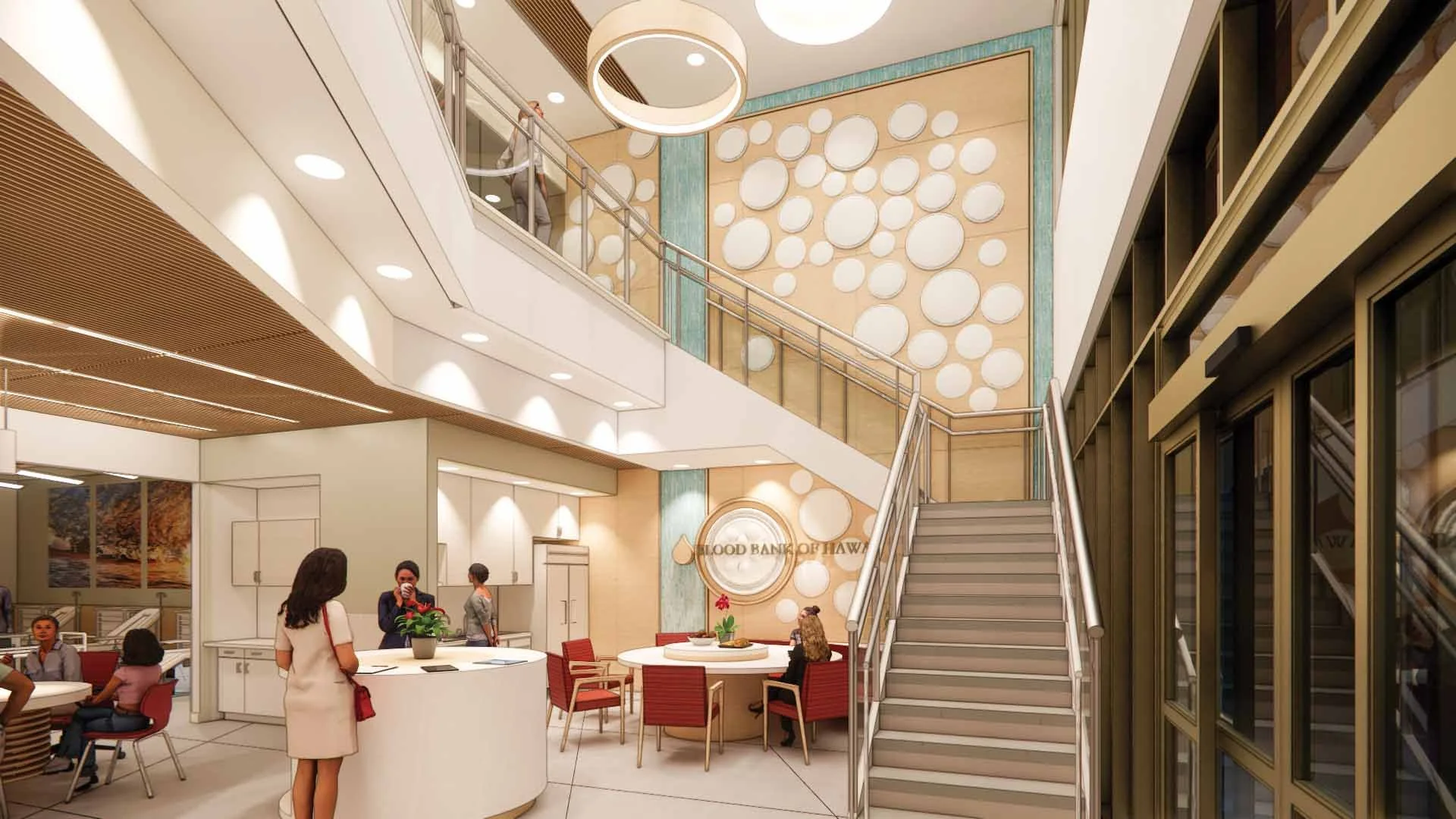Lifeblood of the Islands
The Blood Bank of Hawai'i quietly fulfills one of the state's most vital roles from its Dillingham Boulevard location. Founded in 1941, BBH is the oldest independent community blood bank in the country. "The blood center in San Francisco used to have that moniker," says Dr. Kim-Anh Nguyen, BBH president and CEO. "They opened in the same year (1941) but they're now part of a larger system. We're still independent."
BBH's founding mission was simple: prepare for the unknown. Before Pearl Harbor, three physicians secured a grant to collect and freeze plasma units. "They collected over 300 units of plasma and stored it at Hawaiian Electric in freezers," Nguyen recalls. "A lot of people thought these three forward-thinking visionaries were crazy." When O'ahu was attacked on December 7, 1941, those units were used within a day to treat the wounded. "It's a stark reminder of the need," Nguyen notes. "We can never predict when the next disaster is going to hit."
Since then, BBH has never closed. "We were run by the military during the war," Nguyen explains. "Afterward, ownership was transferred to the public sector, and we've been on Dillingham since 1980." After four decades in the same building, the organization is preparing for a new chapter. "We're building a brand-new headquarters, right behind Costco," she says of the Kapolei facility opening in early 2026.
Nguyen's journey to BBH began in Vietnam. Her family was airlifted out of Saigon and resettled in New Jersey when she was 7. "I always wanted to do research," she recalls. "I was fascinated by science and the human body from a young age." She earned her medical degree and Ph.D. in immunology, then trained in San Francisco, where she discovered blood banking. "Blood is not just something we work with in a lab or research; it actually is the medicine,” says Nguyen. “It is the treatment.”
After 12 years at the Bay Area blood center, the opportunity to lead BBH presented itself. What struck her was the community connection. “The donors and the patients look the same,” she says. “The diversity of blood donors matches the diversity of the patients.”
Meeting the state’s daily blood demand — 150-200 donors a day — remains challenging. “Right now Hawai‘i is not self-sufficient,” she adds. “We have to import blood from the mainland. That’s risky because all it takes is one bad snow storm or hurricane and those imports stop. We need donors to say yes and come in and roll up their sleeves.”
This challenge became apparent during the pandemic. “Before COVID, 70% of Hawai‘i’s blood came from blood drives. Overnight, all drives were canceled. We quickly stood up pop-up donor centers and went on TV and online, and donors came in,” Nguyen says.
Innovation has always shaped BBH. In early years, donations were drawn into glass bottles. “We had staff working in our lab who would use a sharpening stone to sharpen the needles,” Nguyen says. “Everything was cleaned and sterilized in an autoclave; put into an oven under pressure.” Later, BBH transitioned to plastic blood bags. “Glass bottles were easy to clean and sterilize, but they were heavy and broke easily, especially when we had to fly blood between islands,” she explains. Today, state-of-the-art machines automate blood separation. “It’s as if we took the laboratory we have at Dillingham and shrunk it down and stuck it inside the machine,” Nguyen says. “Now, 100% of our platelets are collected using this technology,” she adds. “And about 20%-25% of our red cells. It’s a much more efficient and patient-driven approach.”
BBH is investing in people through partnership with Farrington High School, training phlebotomists before graduation. “Today, I saw four of those students working full-time at BBH,” Nguyen shares. “We’re not only saving lives — we’re building futures.”
BBH’s mission is deeply personal. “When I donate, I’m putting something from my body into yours to save your life or help you heal,” Nguyen says. “You can’t get much more direct than that.” And the impact is immediate — BBH processes donor blood in two days before it goes
to hospitals. “The entire state of Hawai‘i only has about a week’s supply of blood,” she continues. “So, almost as soon as the blood gets collected, it goes out. That impact is profound.”
BBH calls on the community to uphold this legacy. To ensure Hawai‘i remains self-sufficient, donors are urged to visit bbh.org. Because in this island paradise, the gift of blood is truly the gift of life.




